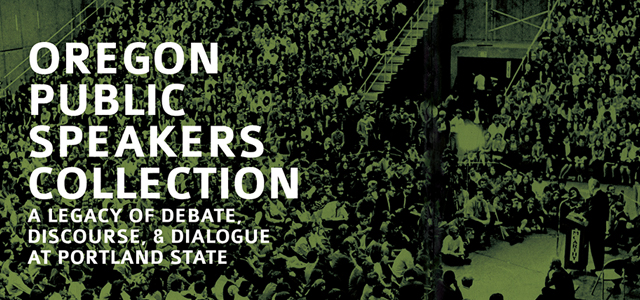Date
2-28-1975
Series
Vital Partners: University and City
Length
30 minutes
Notes
Richard E. Bellman, an American applied mathematician, worked in industry for years before turning his attention to applied mathematics in biology and medicine. He was the founding editor of the journal Mathematical Biosciences in 1967. In this lecture, Bellman addressed the difficulties in understanding large and complex systems, and suggested that computer simulation can be a useful tool for increasing our understanding of them.
Transferred and preserved by Portland State University Library’s Special Collections with the generous support of the Institute of Museum and Library Services through the Library Services and Technology Act, administered by the Oregon State Library.
Subjects
System theory, Technology
Original Format
Reel to reel, 3.75 ips, 1/2 track, mono
Rights
This digital access copy is made available as streaming media for personal, educational, and non-commercial use only. It cannot be reproduced in any form, distributed or played for commercial purposes. It is made accessible because of one or more of the following situations: the rights are owned by State Board of Higher Education, on behalf of Portland State University; Portland State University has permission to make it accessible; it is made accessible for education and research purposes under fair use; or there are no known restrictions on use. In the event that previously unknown information is shared that may change the status of this item, it will be immediately removed from public view until pertinent rights issues are clarified.
Persistent Identifier
http://archives.pdx.edu/ds/psu/11373
Recommended Citation
Bellman, Richard Ernest, ""Large Systems"" (1975). Special Collections: Oregon Public Speakers. 123.
http://archives.pdx.edu/ds/psu/11373



Description
Transcript added August 31, 2020.
PSU Library Special Collections and University Archives presents these recordings as part of the historical record. They reflect the recollections and opinions of the individual speakers and are not intended to be representative of the views of Portland State University. They may contain language, ideas, or stereotypes that are offensive to others.